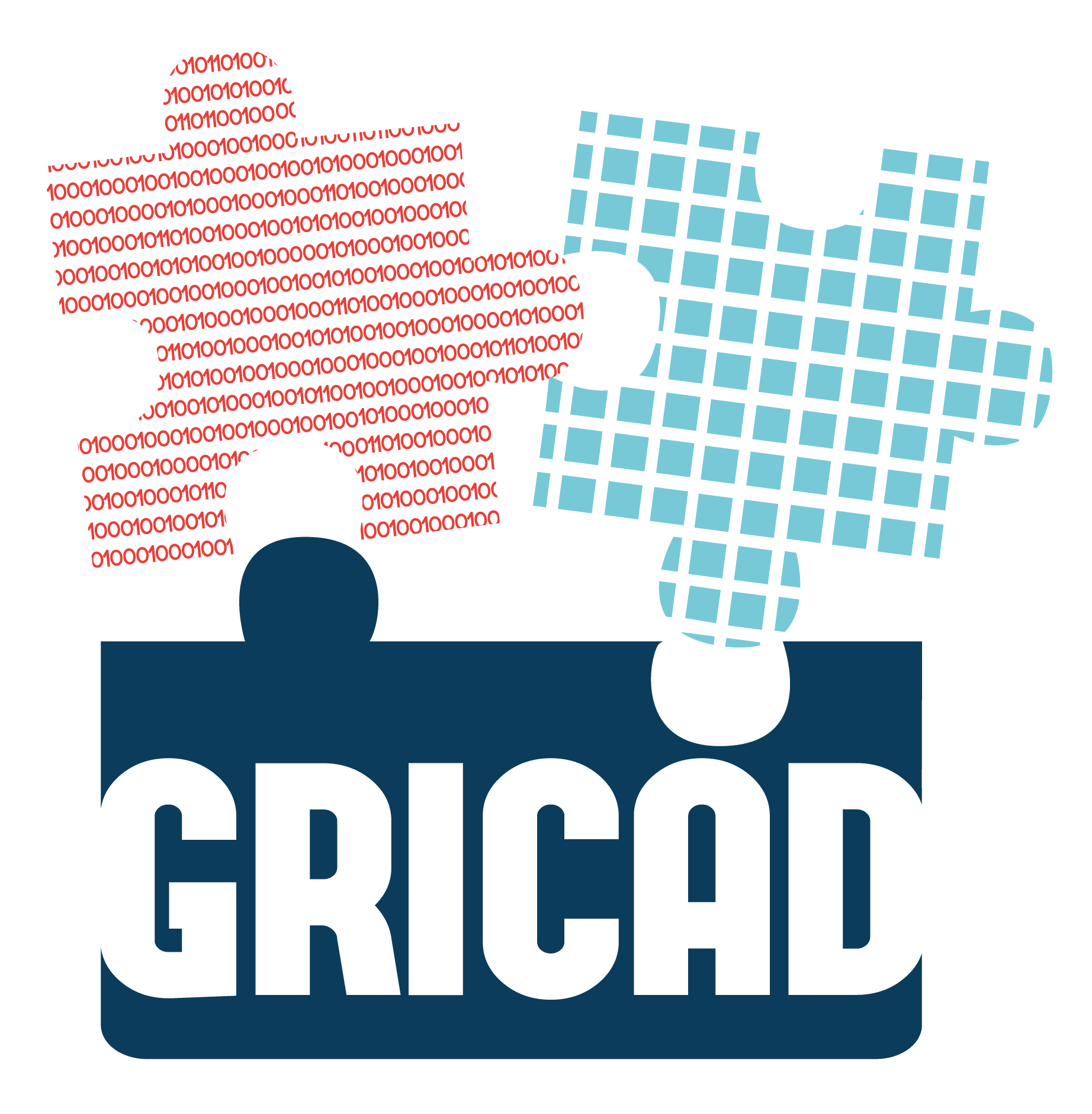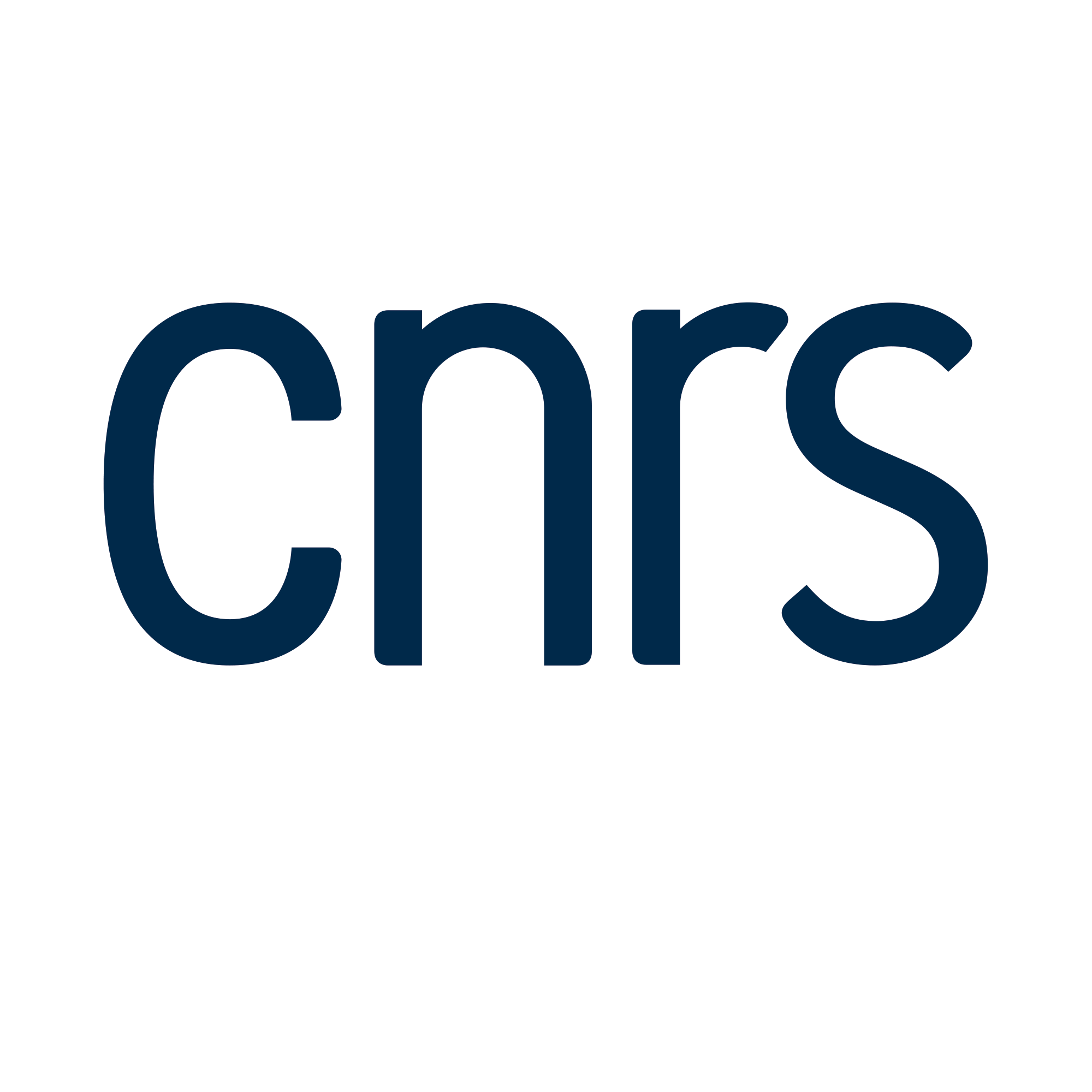News
DATA SHS: opening of the 2025 needs survey
As part of the GATES project and its dedicated Humanities and Social Sciences (SHS) axis, the 2025 needs feedback campaign is open until 1 June 2025. The aim is to identify the SHS research projects requiring data engineering support for the 2025-2026 academic year.
Project leaders attached to the SHS and PSS units on the UGA site are invited to fill in an online form to describe their research project and their data requirements. The responses will be examined by a steering committee and a scientific committee, and the results will be announced at the start of the academic year in September 2025.
For the latest news from the GATES engineering pool, visit their blog https://gates-data-shs.gricad-pages.univ-grenoble-alpes.fr/blog/
Kraken’s freeride
 GRICAD is launching a call for projects for its new Kraken supercomputer, available from June 2 to June 30, 2025 in “challenge” mode.
GRICAD is launching a call for projects for its new Kraken supercomputer, available from June 2 to June 30, 2025 in “challenge” mode.
Public researchers in Grenoble can submit applications before April 14, 2025.
This “freeride” period offers exclusive access to 11,328 AMD Genoa CPU cores, 28 Nvidia H100 GPUs and a 300 TB NVMe storage system.
Projects must be able to scale on either CPU (9,984 cores) or GPU (28 H100) partitions, or both.
This test phase will enable the platform's operation to be evaluated and fine-tuned in real-life conditions.
The selected researchers will have full access to the compute nodes and scratch system, but should expect some platform reboots.
The aim of this initiative is to involve the HPC community in evaluating the performance of the new system in a real-life environment.
Successful projects will contribute to the improvement of Kraken before its official launch.
All the information is available on this page,
GRICAST, the GRICAD podcast, is finally here!
 This year GRICAD is launching a new podcasting service for research organisations.
This year GRICAD is launching a new podcasting service for research organisations.
To promote it, we have created GRICAST, the GRICAD podcast, where we discuss the issues that are important to us and the services we offer.
This podcast is only in French.
You can now listen to all 4 episodes of season 1 :
- GRICAST #01 - C'est quoi GitLab ?
In this first episode, Pierre-Antoine Bouttier introduces us to the GitLab software forge hosted by GRICAD and available to the Grenoble higher education and research community. - GRICAST #02 - La sobriété numérique
What is digital sobriety? Our guests Florence Maraninchi and Denis Trystram, teacher-researchers at ENSIMAG, shed some light on the issue. - GRICAST #03 - Le calcul intensif pour la recherche
A new episode in which Pierre-Antoine Bouttier, Bruno Bzeznik and Benjamin Arrondeau from GRICAD discuss high performance computing and its importance for Grenoble's research. - GRICAST #04 - La science ouverte, le début d'une aventure collective
« Some see open science as a way of facilitating research work. Others see it as an additional constraint. Whether you know a little, a lot, or nothing at all, if you're here with us, it's because you want to learn more.» In this final episode of the season, the members of the Cellule Data Grenoble Alpes give an overview of what open science is and what is at stake.
Links to the various platforms are available on this page, you'll also find all the information you need to create podcasts for your laboratory.
GRICAST season 2 is currently being recorded, with new episodes coming soon. In the meantime, we hope you enjoy listening!
The news of 2024
Café Guix - Reproducible software environment, in what timeframe?
26 november from 1pm to 2pm
Visio
 This session will be led by Simon Tournier (Université Paris Cité)
on this link.
This session will be led by Simon Tournier (Université Paris Cité)
on this link.
The question of Reproducible Research implicitly raises the question of time.
It's not just a question of being able to redeploy exactly the same software environment just now.
The issue of the software environment for Reproducible Research is about the ‘later’ of this redeployment.
This raises two questions: firstly, can we already talk about a reproducible software environment?
And if not, when? What's missing?
Then, what are we doing today to prepare for ‘later’?
Can we evaluate this later? 6 months, 1 year, 2 years, more? Here, through the prism of Guix, we propose to discuss some of this.
You will find all the information concerning the "Cafés Guix" here :
https://hpc.guix.info/events/2024-2025/café-guix/.
GRICAD 2024 Users' Day
19 november 2024 from 2pm to 5.30pm
IMAG building auditorium, Saint Martin d'Hères
 This year, the day will take place over half a day, but as every year,
it will provide an opportunity for GRICAD UAR users to get together and exchange ideas.
This year, the day will take place over half a day, but as every year,
it will provide an opportunity for GRICAD UAR users to get together and exchange ideas.
In the first part, we'll talk about developments in GRICAD and its services.
The second part will offer feedback from users of the services provided by GRICAD.
You can find the programme on the website
https://jug-2024.sciencesconf.org.
Presentation of the ‘Reproducible Research’ MOOCs
22 october 2024 from 2pm to 3pm
Visio
 Konrad Hinsen and Arnaud Legrand, authors of the two ‘Reproducible Research’ MOOCs hosted on the fun-mooc platform
"Recherche reproductible : principes méthodologiques pour une science transparente"
and
"Reproducible Research II: Practices and tools for managing computations and data"
will talk about their content, how they work and the differences between them.
Konrad Hinsen and Arnaud Legrand, authors of the two ‘Reproducible Research’ MOOCs hosted on the fun-mooc platform
"Recherche reproductible : principes méthodologiques pour une science transparente"
and
"Reproducible Research II: Practices and tools for managing computations and data"
will talk about their content, how they work and the differences between them.
This session is designed to be interactive, so don't hesitate to come along and ask any questions you might have!
Link to video conferencing:
https://univ-grenoble-alpes-fr.zoom.us/j/92393400807?pwd=YtDZwMoxqMVG46RAJ9e3YBBdPlo2Pa.1
we look forward to seeing many of you!
Café Guix - "Installing and using software easily and reproducibly with Guix"
15 october 2024 from 1pm to 2pm
Visio
 The Guix cafés are back this year with a first session led by Pierre-Antoine Bouttier, UAR GRICAD,
on this link.
The Guix cafés are back this year with a first session led by Pierre-Antoine Bouttier, UAR GRICAD,
on this link.
If you find the world of software environments difficult to access, but want to conduct your digital
experiments in as reproducible a framework as possible, this session is for you.
We'll take a look at the Guix software environment manager, compared to what you may know,
and then take a very practical look at how to use it with just a few commands, which can be
counted on the fingers of one hand.
As a reminder, Café Guix is a place and time for informal, French-speaking exchange around the Guix software environment manager.
Students, researchers, system administrators, IT support staff from labs or computer centers - everyone is welcome to join us for
this one-hour monthly meeting, where we can discuss questions raised by everyone about Guix and its use in the broadest sense.
You will find all the information concerning the "Cafés Guix" here :
https://hpc.guix.info/events/2024/café-guix/.
Café Guix - "The guix time-machine and guix describe commands"
28 May 2024 from 1pm to 2pm
Visio
 This session will be hosted by Marek Felšöci, post-doctoral researcher at INRIA and ICUBE
on this link.
This session will be hosted by Marek Felšöci, post-doctoral researcher at INRIA and ICUBE
on this link.
In Guix, software packages, including Guix itself, are made available through what are known as channels.
Over time, the package offering in these channels evolves.
Versions change, new Guix packages or features appear, others disappear.
For example, in 2021 it was possible to ask Guix to create a software environment with the Inkscape package
in version 0.92 using the command =guix environment --pure --ad-hoc inkscape@0.92=.
In 2024, the channel in question no longer offered version 0.92 of Inkscape and the =guix environment= command
was replaced by the new =guix shell= command.
In order to reuse the command line and recover the original software environment, we need to go back in time.
Impossible? Not for Guix! At the next Café Guix, we'll be looking at how to use his time machine, the =guix time-machine= command.
The channels, which are in fact versioned git repositories, make it possible to keep track of changes.
If you have the list of channels and their respective commit numbers at the time, using =guix time-machine=,
you can go back to exactly the right moment in 2021.
Although it is possible to approximate the correct time marker a posteriori, it is preferable to keep track
of it from the beginning. In this context, we'll also learn about the =guix describe= command.
As a reminder, Café Guix is a place and time for informal, French-speaking exchange around the Guix software environment manager.
Students, researchers, system administrators, IT support staff from labs or computer centers - everyone is welcome to join us for
this one-hour monthly meeting, where we can discuss questions raised by everyone about Guix and its use in the broadest sense.
You will find all the information concerning the "Cafés Guix" here :
https://hpc.guix.info/events/2024/café-guix/.
Transparency to Sustain Open Science Infrastructure
“Transparency to Sustain Open Science Infrastructure” is a new project to be carried out by Université Grenoble Alpes,
and implemented by the GRICAD unit.
The project is dedicated to the sustainability of Open science infrastructure
(e.g. DOAJ, DOAB, OpenCitation, SoftwareHeritage, Dataverse and many more).
Read more...
MESONET
 MESONET aims to meet the needs of researchers, university teachers and industry professionals by developing
structured digital equipment. The main idea is to strengthen the structuring of national and regional offers in
numerical simulation, high-performance computing (HPC), associated with artificial intelligence (AI) methods,
as well as access to a Quantum SImulator (QLM) platform and quantum computing training. The primary
objective is to set up a distributed regional infrastructure by integrating at least one mesocenter per region,
established as references and regional relays. The infrastructure should have a significant impact on the
adoption of national and regional digital infrastructure and AI by researchers.
MESONET aims to meet the needs of researchers, university teachers and industry professionals by developing
structured digital equipment. The main idea is to strengthen the structuring of national and regional offers in
numerical simulation, high-performance computing (HPC), associated with artificial intelligence (AI) methods,
as well as access to a Quantum SImulator (QLM) platform and quantum computing training. The primary
objective is to set up a distributed regional infrastructure by integrating at least one mesocenter per region,
established as references and regional relays. The infrastructure should have a significant impact on the
adoption of national and regional digital infrastructure and AI by researchers.
The main goals of the project are available here.
Watch the presentation video.
In the MesoNET project, GRICAD will operate an cloud computing infrastructure based on Openstack.
This contribution is supported by Université Grenoble Alpes.
Café Guix - "Introduction to G-exp"
30 April 2024 from 1pm to 2pm
Visio
 This session will be hosted by Simon Tournier, research engineer at the
Université Paris Cité
on this link.
This session will be hosted by Simon Tournier, research engineer at the
Université Paris Cité
on this link.
After reading the
[« Package definition »] section, and after a few test/error iterations, we have to put #~(#$(% symbols here and there.
This Café Guix will try to make them less cryptic.
We'll be introducing a few ingredients from the Scheme/Guile toolbox (quote, quasiquote, unquote),
which will lead us on to G-expressions.
As a reminder, Café Guix is a place and time for informal, French-speaking exchange around the Guix software environment manager.
Students, researchers, system administrators, IT support staff from labs or computer centers - everyone is welcome to join us for
this one-hour monthly meeting, where we can discuss questions raised by everyone about Guix and its use in the broadest sense.
You will find all the information concerning the "Cafés Guix" here :
https://hpc.guix.info/events/2024/café-guix/.
Séminaire recherche reproductible : Computo, un nouveau journal de stats/ML axé sur la reproductibilité
9 April 2024
Visio
As part of the seminars "Pour une Recherche Reproductible",
the Reproducible Research network,
Gricad,
MaiMoSiNE et
SARI
invite you to the next webinar
hosted by Ghislain Durif, research engineer at the Cell Biology and Modelling Laboratory, ENS Lyon.
This webinar will be held remotely.
All the information on this seminar is available on the website
Grenoble Reproducible Research Network website.
.
Café Guix - "Introduction to the reproducibility of computing environments: building packages and links with Software Heritage"
27 March 2024 from 1.30 pm to 2.30 pm
Live + remote
 Please note that this session will take place during the "Days of the Reproducible Research Network"
organised from 26 to 28 March
in Grenoble, which is not the usual day or link!
Please note that this session will take place during the "Days of the Reproducible Research Network"
organised from 26 to 28 March
in Grenoble, which is not the usual day or link!
The video link :
https://videos.univ-grenoble-alpes.fr/live/my_events/.
To ask your questions a pad is available at this link:
https://mensuel.framapad.org/p/cafeguix27022024-a6iy?lang=fr.
This session will be led by Pierre-Antoine Bouttier (GRICAD) and Ludovic Courtès (Inria).
How do you reproduce the software environment of your experiment, on different machines and
at different times? This question lies at the heart of the reproducibility of calculations,
and that's what Guix seeks to answer. In this session, we will first look at how to freeze your
Guix software environment and how this goes beyond a list of software names and versions,
and above all, how to re-deploy this environment with the incredible `guix time-machine`.
This is all very nice, but it's clear that it may no longer work if the software source code disappears.
We'll see how integration with Software Heritage (almost!) eliminates this problem.
As a reminder, Café Guix is a place and time for informal, French-speaking exchange around the Guix software environment manager.
Students, researchers, system administrators, IT support staff from labs or computer centers - everyone is welcome to join us for
this one-hour monthly meeting, where we can discuss questions raised by everyone about Guix and its use in the broadest sense.
You will find all the information concerning the "Cafés Guix" here :
https://hpc.guix.info/events/2024/café-guix/.
Mathrice Days
from 11 to 14 March 2024
St Martin d'Hères campus in Grenoble (IMAG building, UGA)
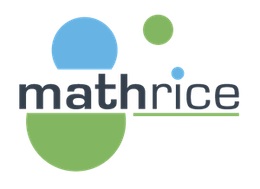 Following on from the joint meeting of the Mathrice and RNBM networks in Grenoble in 2014, and more recently in Paris
with a joint Mathrice / Groupe calcul day at the previous 2023 meetings at the IHP, INSMI's 3 business networks look
forward to seeing you in Grenoble during the same week, with sessions specific to each network and joint sessions.
Following on from the joint meeting of the Mathrice and RNBM networks in Grenoble in 2014, and more recently in Paris
with a joint Mathrice / Groupe calcul day at the previous 2023 meetings at the IHP, INSMI's 3 business networks look
forward to seeing you in Grenoble during the same week, with sessions specific to each network and joint sessions.
- Mathrice days: March 13 and 14
- groupe Calcul days: March 11-13
- RNBM days: March 13 and 14
These days are organized by INSMI units in Grenoble: Laboratoire Jean Kuntzmann, Institut Fourier, GRICAD, Mathdoc et AMIES.
Seminar "Hosting at the Grenoble data centre" : presentations and videos now online
The Datacentre Technical Committee has invited you to a seminar on IT hosting in the Grenoble datacentre on 6 February 2024.
This action is in line with the commitments made for the DC-IMAG and DC-GreenER rooms by adhering to
the Code of Conduct for Energy Efficiency in Data Centres: raising awareness among hosted staff of the need to apply best practice.
This half-day event provided an opportunity to discuss IT hosting at the Grenoble site.
Presentations and videos are available on the event website.
Café Guix - How to make a Guix package with the "Guix Packager" help tool
27 February 2024 from 1pm to 2pm
Visio
 This session of the Cafés Guix will be hosted by Alice Brenon (ICAR / LIRIS) and Philippe Virouleau (Inria)
on this link.
This session of the Cafés Guix will be hosted by Alice Brenon (ICAR / LIRIS) and Philippe Virouleau (Inria)
on this link.
After a brief introduction to the origins of the project, the workshop will present the "Guix Packager" tool.
Some concrete examples of C/C++, python and haskell packages will be demonstrated.
If you'd like to add the few rare packages you're missing from the official guix repositories yourself, this workshop is perfect for you!
As a reminder, Café Guix is a place and time for informal, French-speaking exchange around the Guix software environment manager.
Students, researchers, system administrators, IT support staff from labs or computer centers - everyone is welcome to join us for
this one-hour monthly meeting, where we can discuss questions raised by everyone about Guix and its use in the broadest sense.
You will find all the information concerning the "Cafés Guix" here :
https://hpc.guix.info/events/2024/café-guix/.
Days of the French Reproducible Research Network : state of play
from 26 to 28 March 2024
IMAG building, Saint Martin d'Hères
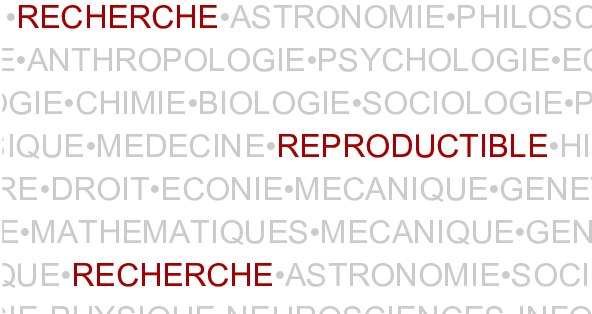 The days of the French Reproducible Research Network
are organized by Céline Acary-Robert (MaiMoSiNE/LJK/GRICAD, Université de Grenoble Alpes),
Pierre-Antoine Bouttier (GRICAD, CNRS, Grenoble) and Violaine Louvet (LJK, CNRS, Grenoble),
in partnership with MESR, GATES/GRICAD, LJK, UGA, CNRS, MaiMoSiNE, and INRIA.
The days of the French Reproducible Research Network
are organized by Céline Acary-Robert (MaiMoSiNE/LJK/GRICAD, Université de Grenoble Alpes),
Pierre-Antoine Bouttier (GRICAD, CNRS, Grenoble) and Violaine Louvet (LJK, CNRS, Grenoble),
in partnership with MESR, GATES/GRICAD, LJK, UGA, CNRS, MaiMoSiNE, and INRIA.
For many years, UAR GRICAD has been deeply involved in the issues surrounding reproducible research in a digital context.
Read more...
Reproducible Research Seminar : The IPOL journal and its approach to open science
8 February 2024
Visio
As part of the seminars "Pour une Recherche Reproductible",
the Reproducible Research network,
Gricad,
MaiMoSiNE et
SARI
invite you to the next webinar hosted by Miguel Colom-Barco, teacher-researcher at ENS Paris Saclay.
This webinar will be held remotely and in English.
Connection information is posted on the
Grenoble Reproducible Research Network website the day before.
The news of 2023
GRICAD 2023 Users' Day
19 October 2023
IMAG building, Saint Martin d'Hères
 As is the case every year, this day is an opportunity for GRICAD UAR users to get together and exchange ideas.
As is the case every year, this day is an opportunity for GRICAD UAR users to get together and exchange ideas.
In the first part, we will talk about the development of GRICAD and its services, and about current projects.
The second part provides an overview of the uses through several examples of scientific work
carried out using the services provided by GRICAD.
You can find the programme and registration (until 9 October) on the website
https://jug.sciencesconf.org.
JCAD 2023
from 2 to 4 October 2023
Reims (hybrid format)
 The GIS FRANCE GRILLES and SLICES-FR/Grid'5000, the Groupe Calcul, the GDR RSD, GENCI and the MesoNET
mesocentres are jointly organising the JCAD 2023, Journées Calcul Données: Scientific and technical meetings on computing and data.
The GIS FRANCE GRILLES and SLICES-FR/Grid'5000, the Groupe Calcul, the GDR RSD, GENCI and the MesoNET
mesocentres are jointly organising the JCAD 2023, Journées Calcul Données: Scientific and technical meetings on computing and data.
JCAD is dedicated to both users and technical experts of infrastructures and associated services.
The aim of these meetings is to present scientific work, in all disciplines, carried out with
the support of grid computing infrastructures, meso-centres or clouds, research work in associated
computing and technical developments and work by the administrators of these infrastructures.
This year, the JCAD will be held in Reims, on the Croix Rouge Campus. The event is organised by the University
of Reims Champagne-Ardenne (URCA) and will be supported by the ROMEO Regional Computing Centre in partnership
with the MEDyC and LICIIS laboratories.
To find out more about these days: https://jcad2023.sciencesconf.org
The days will be webcast, and you can follow the JCAD live on the
Canal-U channel.
UGA wins an award for the energy efficiency of its data center
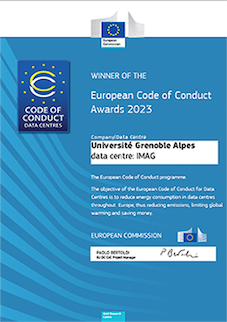 At a ceremony held in Antibes on 4 September 2023, the European Commission's
Code of Conduct Datacentres 2023 award was presented to UGA.
This year the award recognises six European data centers, including DC-IMAG of UGA.
At a ceremony held in Antibes on 4 September 2023, the European Commission's
Code of Conduct Datacentres 2023 award was presented to UGA.
This year the award recognises six European data centers, including DC-IMAG of UGA.
The Code of Conduct Datacentres
was drawn up by the European Commission's Joint Research Centre (JRC).
It aims to encourage data center operators and owners to adopt best practices to reduce
energy consumption and promote sustainability.
With successive generations of rooms at the Grenoble Data Center, UGA is implementing a policy to reduce its environmental impact.
In 2020, two data centers adopted the Code of Conduct Datacentres approach : the DC-IMAG (UGA) and the DC-GREenER (G-INP).
Optimising digital hosting goes hand in hand with the creation of a comprehensive range of shared services and everyone’s
responsibility in the use of digital technologies.
The UGA Datacentre Technical Committee monitors the performance and use of the Grenoble datacentre for Academic & Research.
GRICAD runs it and its members are representative of the organisations hosting equipment.
Its ambitious approach to energy efficiency has now been rewarded.
The next generation of data centre is being planned, GR3@, the GReen GRid GRenoble Alpes.
Designated a Regional Data Centre by the Ministry, it will host the digital resources needed
to meet the challenges of the future, while controlling its environmental impact.
Café Guix - Managing a virtual infrastructure with GUIX
5 July 2023 from 1pm to 2pm
Visio
 This final session of the Cafés Guix will be hosted by Yann Dupont, research engineer at
GLICID
on this link.
This final session of the Cafés Guix will be hosted by Yann Dupont, research engineer at
GLICID
on this link.
Well known as a software package manager particularly well suited to supporting
reproducible experiments, Guix's functionality doesn't stop there.
We propose to explore some of the "guix system" commands, which can be used to generate
complete operating systems and inject interesting features such as consistency and reproducibility.
We will start by writing minimal virtual machines, moving on to more complex deployments,
and then explore deployments used in production on the GLiCID mesocentre.
We will finish with the dessert and try to generate VMs for exotic hardware architectures.
You will find all the information concerning the "Cafés Guix" here.
Gitlab, the companion for your scientific production: software, data, publications...
29 June 2023
Marie Curie Amphitheatre at the CNRS in Paris + live feed
 A day on Gitlab is being organised by the
"Data" inter-network working group of the CNRS Mission for Transversal and Interdisciplinary Initiatives.
The aim is to demonstrate the diversity of uses for developing and managing all types
of scientific production: software, data and publications.
A day on Gitlab is being organised by the
"Data" inter-network working group of the CNRS Mission for Transversal and Interdisciplinary Initiatives.
The aim is to demonstrate the diversity of uses for developing and managing all types
of scientific production: software, data and publications.
On this occasion, Pierre-Antoine BOUTTIER will give two presentations :
- « General introduction to software forges. Gitlab: overview and getting started »
- « Rex Gitlab & Jupyter notebooks ».
Find out more : https://gtdonnees-gitlab2023.sciencesconf.org
Programme : https://gtdonnees-gitlab2023.sciencesconf.org/resource/page/id/1
Direct link : https://cnrs.zoom.us/j/92148034012?pwd=U21LZXdGbUt0M1M1WHNMU3RlR0tzZz09
FPGA Seminar
22 June 2023 at 2pm
Auditorium of the IMAG building
Gricad,
MaiMoSiNE et
SARI
invites you to a seminar on FPGAs, with two presentations
FPGAs and supercomputing: an overview
Olivier Richard, LIG laboratory
For several years now, the field of High-Performance Computing (HPC) has been
dominated by GPU accelerators. What about Field Programmable Gate Array (FPGA)-based accelerators?
Their flexibility, the promise of good energy efficiency, technological developments
and the state of programming software all raise questions about the value of usin
them in this field. In this presentation, we will discuss these different
facets in order to better situate the use of FPGAs in HPC.
A hard look at FPGA usability: from past to present
Olivier Muller, TIMA laboratory
FPGAs are very efficient architectures, but they lack programmability,
which makes them very difficult for the wider computing community to access.
I have been working for nearly 20 years on methodologies to make FPGAs easier to use.
This presentation will show, in simplified terms, the difficulties involved in making
this 'machine' accessible and shed some light on their current usability.
EOSC-France 2023 Days
13 and 14 June 2023
Montpellier (hybrid format)
 The tripartite EOSC France event will take place on 13 and 14 June 2023 in Montpellier.
The tripartite EOSC France event will take place on 13 and 14 June 2023 in Montpellier.
Our GRICAD unit is fully committed to open science.
Joanna JANIK, who is involved in the Skills4EOSC project, will be speaking on 14 June about
the key themes and new projects, in a presentation entitled
« Skills and Competences in the EOSC context ».
The European Open Science Cloud (EOSC)
aims to provide European researchers with transparent access to FAIR data, services and e-infrastructures.
The aim is to improve the productivity of research in general.
As such, the EOSC is also a pillar of France's digital transition, which includes initiatives to
pool services and e-infrastructures for the benefit of the entire research community.
EOSC governance at European level is in place :
with the EOSC association, the European Commission and the
EOSC Steering Board, and in France, the Collège EOSC-France, which represents the interests of the scientific communities.
After the EOSC-France virtual days in 2021
and 2022,
the event will take place both face-to-face and in a hybrid format.
Online registration
is free but mandatory, including for online participants. The event will be conducted in English.
The detailed programme is available online :
https://eoscfrance2023.sciencesconf.org/program.
Café Guix - Package transformations for demanding HPC users
30 May 2023 from 1pm to 2pm
Visio
 This session will be moderated by Ludovic Courtès, research engineer at the Inria centre at the University of Bordeaux,
on this link.
This session will be moderated by Ludovic Courtès, research engineer at the Inria centre at the University of Bordeaux,
on this link.
People who work in HPC are known to be demanding when it comes to flexibility in how software is built:
they want to be able to combine selected versions, enable or disable certain build options, add or not
certain optional dependencies, etc. Spack is known for meeting these needs from the command line.
In this spirit, but in a framework where reproducibility and traceability are the default, Guix's package
transformation options allow you to adjust software to your needs from the command line. We will see the
main transformations, from changing dependencies with `--with-input` to optimising for a micro-architecture
with `--tune`, to choosing specific revisions with `--with-commit`.
And of course, it will be an opportunity to answer your questions on the subject!
You will find all the information concerning the "Cafés Guix" here.
A mission in partnership with GRICAD to strengthen the capacities of the National Computing Centre of Côte d'Ivoire
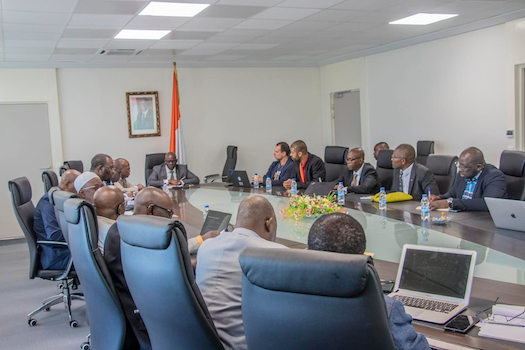 An expert mission from the National Computing Centre of Côte d'Ivoire
(CNCCI) was led by Bruno BZEZNIK, research engineer at GRICAD and Mondher CHEKKI, research engineer at the
Institute of Environmental Geosciences (IGE).
This mission, financed by the Institut de Recherche pour le Développement
(IRD), meets the ambition of the Ivorian government to develop an ambitious programme allowing major
advances in various scientific and industrial fields.
An expert mission from the National Computing Centre of Côte d'Ivoire
(CNCCI) was led by Bruno BZEZNIK, research engineer at GRICAD and Mondher CHEKKI, research engineer at the
Institute of Environmental Geosciences (IGE).
This mission, financed by the Institut de Recherche pour le Développement
(IRD), meets the ambition of the Ivorian government to develop an ambitious programme allowing major
advances in various scientific and industrial fields.
The CNCCI, with a computing power of 322.56 TFlops (322.56 thousand billion elementary calculations in one second)
on 7200 cores, 300 nodes and a storage capacity of 1.6 Po, represents the first high-performance
computing structure in West Africa. After three days of expertise, Bruno BZEZNIK and Mondher CHEKKI
were received on 29 March 2023 by the Minister of Higher Education and Scientific Research,
Professor Adama DIAWARA. This mission allowed them to transmit a report drawing up a state of the art
of the centre as well as a list of recommendations.
A partnership between GRICAD and the CNCCI could be set up in the coming months to support scientific,
pedagogical and technical collaborations.
Café Guix - Guix and the long term: challenges and countermeasures
6 March 2023 from 1pm to 2pm
Visio
 This session will be moderated by Simon Tournier, research engineer at the
Université Paris Cité
and Inserm at the Institut Saint Louis,
on this link.
This session will be moderated by Simon Tournier, research engineer at the
Université Paris Cité
and Inserm at the Institut Saint Louis,
on this link.
In a context of reproducible research, one of the challenges is the ability to
«capture the computational environment» for redeployment or inspection.
And so there is an underlying dimension: the passage of time. Servers are no longer reachable,
sources are no longer available, etc.
In this Café Guix, we will present the problem, the archiving solution
Software Heritage and how Guix is positioned.
Our aim is to introduce the question of «how to do again later and there what has been done today and here ?»
and to initiate a discussion around another corollary question: how to quote a software?
You will find all the information concerning the "Cafés Guix" here.
Café Guix : When packing becomes complicated
21 February 2023 at 1 pm
Visio
 This session will be hosted by Ludovic Courtès on
this link.
This session will be hosted by Ludovic Courtès on
this link.
To give an idea of what a package is, we usually start by showing a
[simple case],
that is immediately understandable and reassuring.
In reality, it is not uncommon for things to get complicated.
In this session, we will see how to adapt a package definition to specify
configuration options or build flags, change
[build phases],
manipulate source or installed files, reference package dependencies.
We will find again some of the notions discussed in the introduction to the language Scheme
of the session of November 29, 2022, for your greatest pleasure.
Bonus: you are welcome to bring your own packaging concerns to discuss them!
At the end of this session, 15 minutes will be devoted to your various questions
including on topics other than the one presented in this café.
You will find all the information concerning the "Cafés Guix" here.
IT hosting seminar at the DataCentre
24 january 2023 from 2 to 5 pm
Auditorium IMAG building + streaming
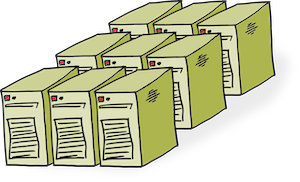 The Datacentre Technical Committee invites you to a seminar on IT hosting in the Grenoble datacentre.
This action is part of the commitments we have made for the DC-IMAG and DC-GreenER rooms by adhering
to the "Code of Conduct for Energy Efficiency in Data Centres": raising the awareness of hosted staff
on the application of good practices.
The Datacentre Technical Committee invites you to a seminar on IT hosting in the Grenoble datacentre.
This action is part of the commitments we have made for the DC-IMAG and DC-GreenER rooms by adhering
to the "Code of Conduct for Energy Efficiency in Data Centres": raising the awareness of hosted staff
on the application of good practices.
Registration is required to attend the event.
You can find all the information about this event here.
The news of 2022
Reproducible Research Seminar of 20/10/2022: video and online support
The video and the presentation of the seminar by Valérie Orozco "How to improve our
practices (data processing, code writing) to move towards (more) reproducible research?
Feedback in applied economics". are now online on the
the site of the Grenoble Network for Reproducible Research.
How to concretely disseminate your data in the UGA collection of Research Data Gouv?
29 november 2022 from 1 to 2 pm
Videoconference
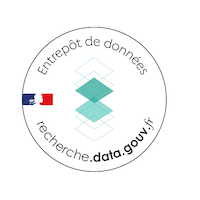 Inaugurated by the Ministry of Higher Education and Research last July,
the Recherche.Data.Gouv.fr platform
allows users to search or deposit data sets on a trusted national repository.
The challenge is to widely disseminate research results to promote open science and collaboration.
This is one of the objectives of the National Open Science Plan.
Inaugurated by the Ministry of Higher Education and Research last July,
the Recherche.Data.Gouv.fr platform
allows users to search or deposit data sets on a trusted national repository.
The challenge is to widely disseminate research results to promote open science and collaboration.
This is one of the objectives of the National Open Science Plan.
This system is part of an ecosystem that promotes the sharing and opening of research data
and offers different types of support to researchers.
In this context, the UGA, which is very involved in Research Data Gouv, has
an institutional space accessible to all members of the Grenoble Alpes community by simple authentication.
To open science, participate and deposit your data!
La cellule data Grenoble Alpes
is at your disposal to support you in the management of your data.
Do not hesitate to contact her at sos-data [at] univ-grenoble-alpes.fr.
To inform you about all these topics and show you how to concretely disseminate your data in the
UGA collection of Research Data Gouv, she offers
a webinar here.
The 2022-2023 season of "Cafés Guix" begins !
25 october 2022 at 1pm
Videoconference
 This first session "Installing and using easily and reproducibly your software with Guix"
will be presented by Pierre-Antoine Bouttier (GRICAD) on
this link.
This first session "Installing and using easily and reproducibly your software with Guix"
will be presented by Pierre-Antoine Bouttier (GRICAD) on
this link.
If the world of software environments seems difficult to access but you want to conduct your
digital experiments in a framework as reproducible as possible, this session is for you.
We will get to know the Guix software environment manager, compared to what you may know,
and then we will see, very concretely, how to use it in a few commands, which can be counted on one hand.
You will find all the information concerning the "Cafés Guix" here.
How can we improve our practices (data processing, code writing) to move towards (more) reproducible research? Return of experience in applied economics
20 october 2022 at 2pm
Videoconference
As part of the "For Reproducible Research" seminars, Gricad, MaiMoSiNE and SARI
offers a new webinar on improving our practices for reproducible research.
It will be presented by Valérie Orozco, Engineer in statistics and econometrics
at INRAE Occitanie-Toulouse in the UMR Toulouse School of Economy Research.
The connection information will be published later.
Practical information on
the site of the Grenoble Network for Reproducible Research
10 years of Guix software: videos and materials are online
If you haven't seen the days dedicated to the 10 years of the Guix software, the videos and the supports of the presentations are now available in link in the program, with this summary post.
Exascale report
 In the perspective of future European exaflopic machines,
this report,
resulting from the reflections of sub-project 3 (SP3) of the exascale France project,
presents a vision of the current state of the applications and the dimensioning of the
technical and human needs relative to these applications which will enable them to run on these machines.
In the perspective of future European exaflopic machines,
this report,
resulting from the reflections of sub-project 3 (SP3) of the exascale France project,
presents a vision of the current state of the applications and the dimensioning of the
technical and human needs relative to these applications which will enable them to run on these machines.
Information on repeated power outages
 Dear users,
as you may have noticed, these last weeks (July 15 and 20, 2022) we experienced some power outages
which forced us to stop the computing servers. Once again, we apologise for this.
Dear users,
as you may have noticed, these last weeks (July 15 and 20, 2022) we experienced some power outages
which forced us to stop the computing servers. Once again, we apologise for this.
These power outages are caused by the electricity provider ENEDIS, their explanation is as follows:
The incidents of July 15 and 20 were due to faults on underground HV cables.
This period of heat wave puts a lot of stress on the distribution network,
especially the underground power lines which are sensitive to high temperatures.
The repair of these 2 cables has been done and we are now back to normal power supply.
The Recherche Data Gouv ecosystem and the Data Grenoble Alpes Unit
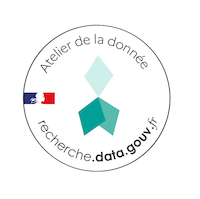 On Friday, July 8, 2022, the Minister of Higher Education and Research inaugurated
Recherche Data Gouv, an ecosystem for sharing and opening research data.
On Friday, July 8, 2022, the Minister of Higher Education and Research inaugurated
Recherche Data Gouv, an ecosystem for sharing and opening research data.
Recherche Data Gouv
includes on the one hand a repository and a registry for deposit, publish and disseminate data,
and on the other hand data management clusters, thematic reference centers and ressources centers
to support research teams around data.
The UGA, through GRICAD and BAPSO, actively participates in the Recherche Data Gouv repository module.
GRICAD is very involved in Research Data Gouv, in particular through the strong presence of GRICAD staff
in the Cellule Data Grenoble Alpes
which is one of the first 5 data management clusters labeled by the Ministry in June 2022.
2 sites to consult to know everything about :
Opening of a Binderhub service
GRICAD offers a new notebook sharing service, Binderhub, accessible in beta version for the moment (no permanent data).
This is an online service for creating and sharing notebook environments, via a code repository (git, gitlab, etc.).
It allows demonstrations and collaborative work.
To access
the service.
Do not hesitate to contact us: sos-gricad@univ-grenoble-alpes.fr.
Archiving, identifying, describing and citing software with HAL and Software Heritage
21 april 2022 at 2pm
Videoconference
As part of the "For Reproducible Research" seminars, Gricad, MaiMoSiNE and SARI announce the next webinar.
It will be animated by Morane Gruenpeter, research engineer in the Software Heritage project,
specialist in metadata and will deal with the theme: Archiving, identifying, describing and citing software
with HAL and Software Heritage.
The conection information will be published later.
Practical information on
the site of the Grenoble Network for Reproducible Research
The electronic laboratory notebook, a transverse tool for reproducible research
5 may 2022 from 2 to 4 pm
Videoconference
As part of the "For Reproducible Research" seminars, Gricad, MaiMoSiNE and SARI offer you this
seminar on the electronic laboratory notebook.
This session continues the presentation of tools to facilitate the implementation of replicable research.
The eLabFTW laboratory notebook will be presented (Nicolas Carpi, Institut Curie) as well as its
implementation at UGA/GINP and its concrete use (Jean-Luc Parouty, SIMAP).
Presentations and videos are available on the website
Grenoble Network for Reproducible Research.
Feedback from the Data Grenoble Alpes Unit
 Couperin's GTSO Data
regularly publishes feedback on the approaches implemented to support data management practices in institutions.
Couperin's GTSO Data
regularly publishes feedback on the approaches implemented to support data management practices in institutions.
Now it's the turn of the Cellule Data Grenoble Alpes (CDGA) to present what has been implemented in Grenoble.
To find this interview with Violaine Louvet (GRICAD) and Lucie Albaret (BAPSO UGA) follow
this link.
Opening of the new UGA open science website
 Open science aims to promote the unhindered dissemination of publications,
data and research codes in order to generalize access to knowledge.
Open science aims to promote the unhindered dissemination of publications,
data and research codes in order to generalize access to knowledge.
The University of Grenoble Alpes is committed to this national and international sharing dynamic,
which today has major scientific, ethical and societal implications.
The new UGA Open Science website
is the single point of entry to all information, resources and services, events, training
and news on the subject. It will support Grenoble's scientific communities in implementing
open science for all research productions.
Whether you are looking for help to write a Data Management Plan (DMP), to deposit
a publication in HAL, to understand Plan S, to store or process sensitive data, this site
will answer your questions.
It was realized and will be animated by the members of the cells Data Grenoble Alpes and HAL UGA.
Il a été réalisé et sera animé par les membres des cellules Data Grenoble Alpes et HAL UGA.
Information and exchange day "Research data management in SHS" : videos and supports are online
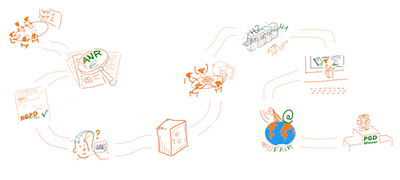 This day dedicated to the management of research data in SHS in the context of open data
took place on November 23, 2021. It was organized by the Pacte laboratory in partnership
with the Cellule Data Grenoble Alpes and the Plateforme Universitaire des Données Grenoble Alpes.
This day dedicated to the management of research data in SHS in the context of open data
took place on November 23, 2021. It was organized by the Pacte laboratory in partnership
with the Cellule Data Grenoble Alpes and the Plateforme Universitaire des Données Grenoble Alpes.
All presentations can be viewed on the
UGA Podcast platform.
The program and presentations on
sciencesconf.org.
The news of 2021
GRICAD 2021 User's Day : videos and supports are online
The recordings of the presentations given during this annual meeting between
GRICAD and its users, are available for viewing
here.
As well as the presentations.
Reproducible Research Seminar Guix and Nix : online recording
The recording of the Guix and Nix seminar organized by Gricad, MaiMoSiNE and SARI is available here.
Impact Num: Environmental impacts of digital technology
 A MOOC co-produced by the association Class'Code and INRIA to question the environmental
impacts of digital technology,
to learn to measure, decipher and act, to find one's place as a citizen in a digital world.
A MOOC co-produced by the association Class'Code and INRIA to question the environmental
impacts of digital technology,
to learn to measure, decipher and act, to find one's place as a citizen in a digital world.
Françoise Berthoud, engineer at GRICAD and founder of GDS EcoInfo is co-author of the MOOC.
Find this
course online on the FUN platform (France Université Numérique).
JCAD 2021
December 13 to 15, 2021
Dijon
The GIS FRANCE GRILLES and GRID'5000, the Groupe Calcul, the GDR RSD, the
mesocentres and GENCI are organizing the JCAD 2021, Journées Calcul
Data: Scientific and technical meetings on computing and data.
These days are dedicated to both users and technical experts of
computing and data infrastructures and associated services.
Registration is open until December 1, 2021.
All the information is here.
47th ORAP Forum: "Vers un HPC frugal"
December 7 and 9, 2021
In remote mode
The ORganisation Associative du Parallélisme (ORAP) organizes once or twice a year
a "Forum" intended to allow the actors of high performance computing to meet
and to have a space of "technological watch" on this field.
Read more about this forum.
DATA-SHS Week
December 6 to 10, 2021
Amphi MSH-Alpes
The DATA-SHS week is a week of presentations and practical workshops on data processing
and analysis in the humanities and social sciences (SHS). It mobilizes the national network
of university data platforms (PUD) and takes place concurrently within these different platforms.
It is part of the activities of the IR Progedo (Research Infrastructure) which aims to promote
the use of quantitative data in France.
Participation is free, but registration is required before December 3, 2021.
All the information is here.
GRICAD 2021 User's Day
Le 30 november 2021
IMAG building auditorium
This day is the annual meeting place between the UAR GRICAD and the users of its services.
Through technical and scientific presentations, GRICAD communicates on the results and evolutions of its services and
the underlying infrastructures while the scientific presentations proposed by the users
offer an overview of the diversity of practices and issues addressed through the tools offered by the unit.
Participation is free, but registration is required.
Program and registration here.
Information and exchange day "Research data management in SHS"
Le 23 november 2021
IMAG building auditorium
This day is dedicated to the management of research data in SHS in the context of open data.
Organized by the Pacte laboratory in partnership with the Cellule Data Grenoble Alpes
and the Plateforme Universitaire des Données Grenoble Alpes, this event is open to all researchers,
teacher-researchers, doctoral students and engineers from the SHS laboratories of Grenoble.
Participation is free, but registration is mandatory.
Program and registration here.
Webinar "Services de sites de l'UGA"
See or review the presentation of SPRING, SUMMER, WINTER, FALL+TRICHOLOME and research infrastructure services (Computing, Big Data..) POD - Webinaire Services De Sites De L'Uga (univ-grenoble-alpes.fr)
Reproducible Research Seminar Guix and Nix
25 november 2021
IMAG building auditorium
As part of the seminars "Pour une Recherche Reproductible", Gricad,
MaiMoSiNE et SARI organizes a seminar on Guix and Nix on
November 25 from 1:30 to 5:00 pm at the IMAG building auditorium.
The seminar will be broadcast live and the broadcast link will be provided shortly.
Practical information on the site
Réseau Grenoblois autour de la Recherche Reproductible.
The RDA Pathways RDA
November 3, 4, 9, 10 and 11, 2021
The RDA France 2021 Days
October 11 to 15, 2021
Remote
The meeting is composed of four workshops and a plenary session: detailed program.
Silenus
Silenus, Gricad's new scratch storage infrastructure for HPC , is now operational. This infrastructure was acquired and implemented to meet the needs of very high performance scratch storage, especially on very intensive reading/writing operations. It is accessible from the Dahu cluster as a local storage system, like Bettik, under the /silenus tree. There is a /silenus/PROJECTS/ folder for each Perseus project. In each of these folders there is a folder common to all the members of the project as well as a folder for each member of the project. These folders automatically have the right rights in reading and writing to allow you to share your data with your collaborators within the same project and to keep your personal data confidential. Folders /silenus/chunks_* offer possibilities for optimizing the use of the platform in specific contexts. Silenus is a real scratch space on which data is automatically deleted after thirty days of inactivity. You will receive a warning message for each file that reaches or exceeds 20 days but it is strongly recommended to use Silenus only during the execution of the job with a copy of the data on this space just before or at the beginning of the job and a transfer to another more perennial storage space at the end or directly after the job.
CNRS Cristal
This year, the CNRS has decided to reward the work of the PLMteam with a crystal. The PLM (Platform in Line for Mathematics) is a national infrastructure distributed in mathematics laboratories, managed within the framework of the RT Mathrice of the CNRS, by a technical team distributed geographically. Its partnership with GRICAD, under the aegis of INSMI, will enable PLM to take the turn of cloud computing. Congratulations to Laurent Azema who joins the GRICAD system team and will lead the Datacentre Technical Committee, in the same spirit of cooperation of its members towards a common achievement in the service of the research.
Evolution of infrastructures for AI and computing on GPU
In recent months, demand from GPU computing research communities, especially AI, has grown significantly. To meet this growing need, GRICAD added 4 new GPU compute nodes in the DAHU cluster. GRICAD, through this cluster, provides Grenoble research staff and their collaborators with 6 GPU nodes, ie a total of 24 NIVIDA Tesla V100 GPUs (32GB of RAM per GPU). It should be noted that these nodes are very similar to the GPU / IA nodes that the supercomputer of the IDRIS (national computing center CNRS) Jean Zay. We have also made it possible, in our cloud computing service called NOVA, the deployment of virtual machines ( VM) on demand including GPUs. If you do not have strong performance needs but are in a testing / code development / prototyping phase, do not hesitate to orient yourself towards this service, which is more flexible, flexible and versatile.
Data Cell (Cellule Data) seminar : online recording and presentation
This seminar "Data Management Plan (DMP)" occured on 30 april 2021 online. Seminar recording is available on this link. And presentation slides.
Storage of research data Seminary
The Data Unit of the Grenoble Alpes site, INIST-CNRS and URFIST in Lyon organizer of a series of online events dedicated to Storage of research data . A first national seminar addressing the general issues of will be supplemented by local sessions at some sites partners of the event. These for but to present the solutions storage facilities set up at the local level and will target more particularly to the scientific communities of the sites concerned.The general seminar took place on May 25, 2021 from 2 p.m. to 4 p.m. by videoconference. On the program: types of storage? Where and how to store data ? How to organize and document your data? Links with open science ...
To access the resources of this session Information on other sessions will be disseminated. All these events are accessible without prior registration.
Reproducible Research Seminar
April 6 and 9, 2021
MaiMoSiNE, GRICAD and the SARI network are organizing two half-day online seminars around reproducible research to bring together a network of skills in the Grenoble area. - Tuesday April 6, 2021 morning: Part I - Introduction, ethical, legal, environmental issues - Friday April 9, 2021 afternoon: Part II - reproducible good research practices in more targeted research communities A more detailed program will soon be available on MaiMoSiNE's website.
Mantis 2
GRICAD's new distributed storage infrastructure, MANTIS V2 is now available to all users of GRICAD computing machines. It replaces the MANTIS infrastructure which, after more than 10 years of good and loyal service, had become obsolete. As a reminder, MANTIS (V1 or V2) is an iRODS distributed storage cloud available from all the compute nodes of the GRICAD HPC infrastructure. It is an efficient way to store the input data or the outputs of the simulations carried out on the various calculation servers of GRICAD. It is powerful (because storage is spread across multiple nodes), capacitive, and expandable (labs can easily help expand storage capacity by adding new 250TB nodes), and provides a programmable rules engine. With an expandable overall volume of 750TB, each user is allocated one terabyte of space to store their data. To request an extension of this space, do not hesitate to contact us at gricad-contact@univ-grenoble-alpes.fr For more information, you can read the documentation at this address: https: // gricad- doc.univ-grenoble-alpes.fr/hpc/data_management/mantis/
1st Data Cell (Cellule Data) seminar : online recording and presentation
As part of the support around research data, the Data Cell (Cellule Data) of the Grenoble Alpes site start a series of seminars in order to inform and discuss the subject. The 1st seminar "Presentation of the Data Cell and its support actions" occured on 5 mars 2021 online. Seminar recording is available on this link. And presentation slides.
Doctoral College Courses
March 23, 2021
Within the framework of the College des Ecoles Doctorales, the Data Cell of the Grenoble Alpes site offers training on research data entitled "How to manage your data well to facilitate your doctoral work? Issues and good practices". The objective is to know the practical and concrete tools for an effective management of its research. All information is online: on the dedicated website.
Data Cell Seminary
March 5th, 2021
As part of the support around research data, the Data Cell (Cellule Data) of the Grenoble Alpes site will start a series of seminars in order to inform and discuss the subject. The 1st seminar will be devoted to the presentation of the Data Cell and its support actions on research data. It will take place on Friday the 5th of March from 11 a.m. to 12 p.m. on this link.
National Training Action
January 18 to 26, 2021
GRICAD supports the organization of the training action UST4HP (User Tools for HPC), proposed by the Computation and ResInfo networks, which takes place from 18 to 26 January 2021.
This year, the main theme will be reproducibility in HPC environments. Due to the health conditions, the courses and practical work will take place online.
The information is online.
Deep Learning Training
January 14, 2021
GRICAD and Nvidia join forces to offer a Deep Learning training day on January 14, 2021. The information is online .
PIA3 / Equipex+ Projects
GRICAD is a partner of 3 PIA3 / Equipex+ projects that have been selected for funding:
- MesoNet, the network of mesocentres, a project led by GENCI.
- Gaia Data, , whose objective is to strengthen the infrastructures of earth sciences, where GRICAD is associated with OSUG.
- TIRREX, infrastructure for the robotics community.
Doctoral College Courses
January 11 to April 30, 2021
Within the framework of the Collège des écoles doctorales and MaiMosSiNE several scientific computing training courses are available. They are mainly intended for doctoral students but also (limited number of places ...) for researchers/engineers from Grenoble research institutes. Please note that this year, the courses take place in distance learning. All information on the dedicated website
The news of 2020
Labellisation Code of Conduct pour le Datacenter IMAG
Thanks to the work carried out by the GRICAD / UGA datacenter technical committee, the IMAG building datacenter has just been labeled by the European Union Joint Research Center (EU-JRC). To know more about the Code of Conduct.
SAVE THE DATE : GRICAD User day 2020
November the 2nd and the 3rd
The next GRICAD User Day will be held on monday 2nd and tuesday 3rd November 2020, in visioconference. More informations on the website: https://jug2020.sciencesconf.org/
Grille de stockage haute capacité MANTIS-2
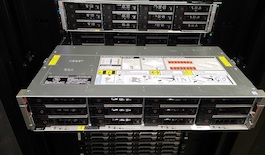
MANTIS is a storage platform initially intended for inputs / outputs of "grid" type calculations, which are capable of bring into play the CPU resources of all the computing machines managed or co-managed by Gricad. It offers a large storage capacity accessible directly from any computation node and allows the storage of transient data or that must be accessed from heterogeneous sources. This scalable distributed platform driven by "iRods" middleware has been running since 2011 and had reached the size of 1.2 petabytes spread over about fifteen servers. Today, GRICAD has just put MANTIS-2 into production, a second similar platform, also managed under iRods and intended for replace the first grind shortly. It already offers 750 terabytes delivered by only 3 servers. Its capacity and performance are therefore highly scalable, by simply adding 250 base bricks terabytes. In addition, it benefits from better synchronization at Gricad authentication system (Perseus), removing the problematic dissociation of connection keys. Users will soon be invited to migrate their data from MANTIS to MANTIS-2.
Good Practice Guide for the EU Code of Conduct on Data Centre Energy Efficiency
The GRICAD/UGA Datacenter Technical Committee translated the Good Practice Guide for the EU Code of Conduct on Energy Efficiency in Datacenters 2019 for the GDS EcoInfo. This guide is available on line.
Virtual workshop on DMPs
The Data stewarship committee is organizing a virtual workshop on Data Management Plans on July 7.
Support for the Alcov2 project
GRICAD participated in the implementation of
the Alcov2
survey for the study of the transmission of the
new coronavirus in French households conducted by a
Parisian research team.
This survey is aimed at all households French having
possibly experienced, even without certainty, the
presence of the new coronavirus during the containment
period. It will make it possible to better understand
the modes of transmission in households but also in
transportation, schools, places of work, gathering
places, etc.
Contact : alcov2@lpsm.paris
Estimated carbon footprint of one hour per computing core
This study is the result of work carried out within the framework of GRICAD's actions
to reduce its environmental impact.
Find the complete article on
the dedicated
page.
Integration of the cloud to France Grilles
Thanks to the efforts of the entire Openstack technical committee, and more particularly of Remi Cailletaud, the GRICAD "Nova" cloud is now part of France Grilles Research Infrastructure
Involvement in the fight against Covid-19
GRICAD, thanks to its "Nova" cloud, supports several projects around the
Covid-19, in particular data collection and analysis, as well as
MODCOV19 coordination:
- the projet EX-COVID-19, carried by Laboratoire Impact de l'activité physique sur la santé (IAPS)
- the projet FAC, Face au Covid, carried by two laboratories of the INS2I (CNRS): the laboratoire d’Analyse et de Modélisation de Systèmes pour l’Aide à la Décision (LAMSADE) and the le Département Informatique de l'ENS (DIENS)
Rencontre autour des DMP, 14 avril 2020
La cellule data stewardship et le projet Datacc vous
proposent une rencontre autour de la
problématique des Plans de Gestion de Données
(Data Management Plan) le 14 avril à partir de
11h.
Toutes les informations sur le site
:
https://datameetup-dmp.sciencesconf.org/ .
Mise en place d'une cellule data stewardship
GRICAD et ses partenaires ont mis en place une cellule en charge de l'accompagnement des scientifiques sur la gestion de leur données de recherche. Toutes les informations
Hackathon : comment améliorer le dépôt et le partage de données de recherche
Le 14 janvier 2020
La journée que vous propose le groupe de travail inter
réseaux sur les Données mettra un accent particulier
sur les étapes de la gestion des données qui
concernent la préparation et le dépôt des données dans
un/des entrepôt/s qui conviennent. Durant ce hackathon
vous examinerez les façons dont les données doivent
être organisées et décrites pour assurer leur
fiabilité et qualité qui par la suite faciliteront
leur partage et réutilisation. Durant ce hackathon
vous apprendrez aussi ce qu’il ne faut pas faire !
Toutes les informations en ligne.
The news of 2019
SAVE THE DATE : Journée des utilisateurs GRICAD 2019
Le 5 novembre 2019
La prochaine journée des utilisateurs GRICAD aura lieu
mardi 5 novembre 2019, dans l'espace colloque du
bâtiment IMAG.
Le programme est en ligne
et les inscriptions sont ouvertes.
Réservez dès à présent cette date dans vos agendas!
Résultats du hackaton GENCI et vidéo

Les résultats du Hackaton du HPC 2018 organisé par GENCI,
ATOS, INTEL et les mésocentres de Toulouse, Reims,
Grenoble, Bordeaux et Rouen ainsi que par INRIA Bordeaux
sont en ligne.
Les équipes de Grenoble, accompagnées par GRICAD se
distinguent avec le prix de la catégorie "optimisation"
pour le projet de l'équipe YADE TEAM « Calcul distribué
MPI pour la dynamique de systèmes particulaires – Yade-MPI».
